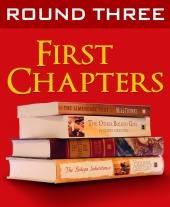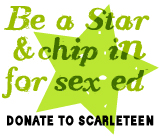 Remember that short story I posted, The Great Passover Rebellion of 1963 about working mothers who weren’t going to take it anymore?
Remember that short story I posted, The Great Passover Rebellion of 1963 about working mothers who weren’t going to take it anymore?
Candy Korman, the author, wrote me to thank me for linking to her story. She also let me know that she is a finalist in Gather.com‘s First Chapters Writing competition. It’s kind of like the “American Idol” of book publishing. One novelist will win a publishing contract with Touchstone/Simon & Schuster, a $5,000 cash prize and promotion by Borders!
I’m posting this to encourage you to read her work, and to vote for her in this competition.
Her novel, Wendy and Alice, is a mystery set in contemporary New York and featuring a soon-to-retire FBI agent contemplating the next chapter of her life. Alice is at loose ends until Wendy, a little girl she rescued from kidnappers decades ago, reappears as a controversial photographer. Wendy’s work is targeted by a conservative family values organization and when the leader of that group is murdered she is the obvious suspect. Freedom of expression, sexuality and the definition of art are explored as passionate characters on both sides of the red/blue divide people this murder mystery.
You can read Chapter 1 and Chapter 2. Please read and vote on Chapter 3. Here’s a taste from Chapter 3:
Alice was less concerned with a child accidentally seeing a sexual image — they certainly saw enough nudes and near nudes in fashion magazines and movie ads — than she was with the likelihood that pedophiles would find Wendy Liddell’s work alluring. That held a real possibility of danger, but Alice wasn’t sure if banning images was a valid option. Once one started banning art, it was a classic, slippery slope toward censorship of all kinds.
According to the New York Times art reviewer, the photos were ” . . . poetic expressions of burgeoning sexuality that rode the fine line between innocence and knowledge.” Were such poetic images dangerous to children? Alice would not have permitted her own daughter to pose nude, nor would she have displayed books of nude children in her home, but that did not mean she harbored naiveté about childhood. Children did not suddenly wake from innocent slumbers and transform into sexual beings. They were, although certainly not old enough to consent to sexual activity and not physically mature enough to experience a full range of sexual feelings, on some level, sexual beings all along.
Little girls and their kissing games, little boys and their curiosity about bodies, roughhousing, staring, pointing, accidental touching, sneaking peeks at magazines, stealing into the ladies room and so much more that is part of the normal development, and natural curiosity of children. Add the peculiar interventions of parents, and other adults, and the sexual evolution of children gets distorted and accelerated. Alice recoiled in disgust at the baby beauty queen industry, which dressed little girls in Miss America gowns and makeup. But the miniature, sexualized adults in these contests were not creatures out of context, they were simply an extreme example of the clothes, hairstyles and mannerisms of ordinary children, who rushed ahead toward adulthood.
You need to be a registered member of gather.com and be logged on to the site before you vote. The site has *truly horrible* navigation, so please click on the links I’ve provided.
Candy mentioned that this book has come close to being published…repeatedly. One publisher held onto it for a year before turning it down, another held it for 6 months.
Comments aren’t necessary but Borders is giving $100 gift certificates to the most insightful comments in round 3 of the competition. Remember that the voting is done by clicking on the appropriate star. Voting ends Wednesday, May 16th.
Enjoy reading!
{ Comments on this entry are closed }









